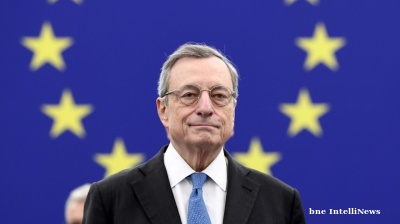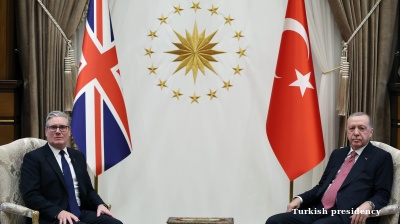As the markets garrotted the lira, Turkey’s president gave up on any idea he had of continuing to stand defiant against an interest rate hike. But if he is re-elected in late June, will the markets trust him to keep a rational hand on the economic tiller? Is Turkey already doomed to suffer a financial crisis?
President Recep Tayyip Erdogan's Ankara palace came with 1,400 rooms but it certainly didn't come with a pole for running up a white flag. Global market players saw one raised on May 23. Facing a full-blown currency crisis, the central bank finally bit the bullet and announced an emergency rate hike in a desperate effort to halt the plunge of the lira. Analysts are convinced the hike was impossible without Erdogan’s loyalists forcing the country’s populist leader into a humiliating climbdown.
The story of the Turkish lira’s collapse in recent months is not for the faint-hearted. Despite the central bank’s emergency action, the country could still go over the cliff edge and slip into a classic emerging market currency-and-debt crisis.
And on top of the near-economic meltdown, Turks go to the polls in a crucial general election in June that is likely to see Erdogan made an executive president with even more power.
Pre-election Erdogan seemed to stand in the way of a long overdue interest rate increase, before relenting when the inevitable heat from global markets became white-hot. Now analysts are asking whether the country can restore its monetary policy credibility. As an indicator of the extent of the damage, Turkey has started paying more to service its debt than even Senegal.
In all, the TRY is down towards 20% against the dollar so far this year, and 30% since last September. The Turkish economy is overheating, its double-digit inflation won’t budge, inflation expectations are rising and Turkey’s current account deficit, one of the widest in the world, is surging. Yet on May 15, Erdogan, even amid this economic mayhem, was still pushing the highly inconventional idea that Turkey needed interest rate cuts, not hikes, during an interview on Bloomberg TV, given during a three-day UK visit. It was this interview, described by some as “bonkers” that really pulled the rug out from under investors’ confidence.
Interview from hell
“Erdoganomics” prescribes monetary loosening, making a simplistic link between interest rates and the rate of inflation: the lower interest rates are, the lower inflation is. Most economists see the relationship working the other way round: if inflation rates are high you have to raise interest rates to force inflation down. But Erdogan was very specific on his view of this point in his interview.
“I would like to make this matter [of interest rates and inflation] open and clear to you. Let me give examples from some countries… In Argentina, the central bank’s nominal interest rate is 40%, current inflation is 25.6%, but if you look at the real interest rate, it is 14.4%. We look at Russia, the central bank’s nominal interest rate is 7.3%, inflation 2.4%, real interest rate 4.9%. We look at Brazil. The central bank’s nominal interest rate 6.5%, inflation 2.8%, real interest 3.7%. Alongside this we look at South Africa, in South Africa a 6.5% central bank nominal interest rate, 3.8% inflation, 2.7% real interest rate. Now I come to my own country. A 13.5% nominal interest rate, 10.9% inflation, 2.6% real interest rate. Alongside this, the US has 1.75% but on the other hand, inflation at 2.5%, [so the] real interest rate is a negative 0.75%. Of course we are in the UK. In the UK the nominal interest rate is 0.5%, inflation 2.5% and the real interest rate is a negative 2%. That means it appears that when the interest rate gets lower, you can see where the real interest rate falls to… There is no need to look left, to look right and to rediscover the world. When there are such open, clear examples, why do we get flung left or right? We need to take our steps accordingly. And our finance sector must balance itself according to this,” Erdogan said in his London interview on May 15. The market sold Turkish assets heavily after it was published.
Defenders of the lira had at least hoped that he would keep schtum on the question of interest rates. Not only did he offer this little lecture he went on to suggest that if he wins the general election he wants to take a bigger role in setting monetary policy.
Looking ahead to the time after the upcoming June 24 snap elections—when Turkey will become a presidential republic with a near-all-powerful executive president, no prime minister and a neutered parliament—Erdogan told the interviewer that while the Central Bank of the Republic of Turkey (CBRT) would be independent in monetary policy, it would not be able to ignore signals from the new executive presidency.
“I will take the responsibility as the indisputable head of the executive in respect of the steps to be taken and decisions on these issues,” Erdogan stated. Citizens would ultimately hold the president responsible for any problems generated by monetary policy. “They will hold the president accountable. Since they will ask the president about it, we have to give off the image of a president who is effective in monetary policies,” he said, adding: “This may make some uncomfortable. But we have to do it. Because it’s those who rule the state who are accountable to the citizens”.
Cue accelerated lira-dumping. Cue utter disbelief. “Erdogan unchained,” strategist Timothy Ash at BlueBay Asset Management immediately called him. As the lira went from hammering to hammering—it was racing towards a startling five-to-the-dollar by the early hours of May 23 as even previously faithful Japanese margin traders cut their long lira to yen positions—financial market investors struggled to find remaining reasons for why they shouldn’t just pull out of Turkey.
As one investor told Reuters: “Why the hell would you come to London, and basically send this message to institutional investors which is exactly what they did not want to hear?”
What was seen by critics as Erdogan’s surrender to classic monetary theory brought an emergency rate hike of 300 basis points (bp). This helped drag the lira back from levels near the all-time low of 4.9294 to the dollar recorded early on May 23, taking it into the 4.60s , but that rate is still regarded as unprecedentedly bad and the markets are clearly demanding even heavier policy action sooner rather than later.
A classic crisis
Warnings that the currency market rout could presage a financial crisis in Turkey are spreading. Writing in The New York Times on May 24, Nobel Prize-winning economist Paul Krugman said: “What’s happening in Turkey is a classic currency-and-debt crisis, of a kind we’ve seen many times in Asia and Latin America. First, a nation becomes popular with international investors and runs up substantial foreign debt—in Turkey’s case, largely debt owed by domestic corporations.”
“Then it starts, for whatever reason, to lose its luster: Right now, emerging markets in general are being weighed down by a rising dollar and rising US interest rates. And at that point a self-reinforcing crisis becomes possible: External factors cause a loss in confidence, which causes a country’s currency to drop, but the falling currency causes the domestic value of those foreign debts to explode, worsening the economy, leading to further declines in confidence, and so on,” Krugman explained.
In a scathing assessment of Erdogan as “Turkey’s Trump”, he added: “When big shocks do hit, the quality of leadership suddenly matters a lot. Which is what we’re seeing in Turkey now. Authoritarian instincts and contempt for rule of law aren’t the only things Erdogan and Trump have in common,” according to Krugman. “Both also have contempt for expertise. In particular, both have surrounded themselves with people notable both for their ignorance and for their bizarre views.”
In St Petersburg, meanwhile, in her own interview with Bloomberg TV, International Monetary Fund (IMF) managing director Christine Lagarde reminded the Turkish government of the importance of preserving the independence of its central bank.
Mixed signals about whether the central bank is free of political interference created a sense of uncertainty among investors, putting the currency under pressure, she said, adding: "In terms of monetary policy, it’s always better for all political leaders to let the central bank governors do the job that they have to do, and to preserve and secure their independence."
"Some of the comments made [by Erdogan] alerted the international community and particularly the investors to the fact that suddenly the central bank of Turkey could be under directions, instructions, or influence," Lagarde also said. "That has created a sense of uncertainty and a lack of confidence, which has found its way in the market."
In a May 25 assessment of the latest situation with the lira, analysts Gunter Deuber and Gintaras Shlizhyus of Vienna-based RBI wrote in a note: "As we predicted, the [central bank] hiking its late liquidity window rate by 300bp did little to stop the TRY bleeding. It appears the regulator faces a ‘classic’ EM crisis dilemma in which a ‘too little too late’ action paradigm puts the bank constantly behind the curve. In this regard the market awaits more concerted actions including a steep rise of all policy rates."
They added: “Sticky inflation and the inflation pass-through from recent TRY devaluation as well as the overall challenging outlook for commodity importing EMs do not give [the central bank] any breathing space in this regard too. So far more emergency policy decisions may need to be taken in the coming weeks.”
Flirting with the IMF
The RBI analysts also looked at whether the IMF might be called in, observing: “We would not rule out that a discussion regarding potential IMF support for Turkey may gain traction going forward (an IMF engagement as ‘external anchor’ may help to restore the policy credibility). At some point ‘flirting with the IMF’ could even be a rational strategy for Turkish policymakers (like they did in the past without signing an IMF deal in the end). However, ahead of the elections at the end of June both a ‘flirting with the IMF’ scenario or even an actual turn to the IMF, are highly improbable options. Therefore, we would expect further volatility on Turkish markets in the days/weeks ahead," the analysts said.
Capital Economics commented in its May 25 note on Turkey that it looked like Erdogan had “taken the hint” where the need for interest rate hikes was concerned but, it cautioned, an abrupt slowdown could be ahead for the country.
Its note stated: “The latest activity data provide signs that economic growth is starting to slow. Admittedly, our GDP Tracker points to growth remaining strong at around 9% y/y in Q1. But the manufacturing PMI fell to a 15-month low in April, before the latest financial market turmoil. And past experience suggests that the sharp tightening of financial conditions in recent weeks is likely to precipitate an abrupt slowdown.”
The lira’s collapse this year is thought to have put many Turkish companies that borrowed in foreign currencies at risk of default and the wicked brew of domestic and international economic negatives have taken the feet from under the lira could wreak havoc.
The opposition smell blood
It’s election season and the opposition smell blood. Meral Aksener, the former interior minister and Iyi (Good) party leader whom many see as having the best hope of unseating Erdogan in the presidential contest, has seized on the lira market rout, describing the president as a “tired driver” who is at the wheel of a “bus heading over the cliff edge”. On May 23, prior to the rate hike, Hurriyet Daily News reported Aksener was calling on the government to “urgently re-establish confidence” in the economy.
She reportedly criticised the government’s economic team for “not seeing the realities” and for not admitting to “its mistakes” of the last past 16 years. Rebutting government rhetoric that the money market and economy were in trouble due to conspiratorial foreign intervention, she said: “If we are under a financial and economic attack as the government claims, the biggest mistake to make is to remain indifferent to this attack. This is to accept defeat from the beginning.”
Though Erdogan — who often points to foreign market conspiracies being mounted against Turkey’s economy — stayed silent on the collapse of the lira, Turkey’s government spokesman said on May 23 that a game was being played with the lira but it would not change the outcome of June’s election, state-run Anadolu Agency reported. “The people have seen the game and the player. The people have seen the puppet and puppeteers. They will not allow them or give an opportunity,” Deputy Prime Minister Bekir Bozdag was quoted as saying.
Ash said in a note: “Brutal truth is we now know [the lira] is a floating currency. Turkey never had enough reserves to defend the exchange rate. Erdogan made a choice between letting the currency go and/or hiking rates and for his particular political calculation he opted to let the currency go.
“The currency adjustment will help rebalance the current account deficit but it will crimp growth [ahead of the June 24 early elections]. Not sure Erdogan gets that and this will also slash import demand. But the FX hit to domestic confidence and growth will be significant.”
Ash also observed that investors in Turkey “need plain vanilla central banking and not some big Erdoganite economic experiment based on little/weak economic foundations”. “[Erdogan has] argued against classic interest rate theory that when faced by rising inflation, rates need to be increased. He argued that high interest rates cause inflation. Now maybe in stagflating DM economies there might be some logic to go against orthodoxy, but certainly not in Emerging Markets. And surely at times like this with the lira under the cosh, with a large current account deficit and external financing requirement/gap, now is certainly not the time for experimentation.”
Not exactly a mea culpa
For his part, in the immediate wake of the emergency hike Erdogan was not exactly issuing a mea culpa, but he did at least state in a televised speech to former lawmakers in Ankara that “in the new government system, we’ll continue to abide by the global governance principles on monetary policy.” Head of the government’s economic team Mehmet Simsek—the deputy PM and former Wall Street banker sometimes referred to as the last “market friendly” member of the Cabinet—was at the same time doing the rounds telling investors Turkey would not stand obstinate against the markets, but Erdogan had, wiser heads will have noted, already qualified his own remarks by warning that he would not let “global governance types” ruin the country. Who’s to really say what road an Erdogan, re-elected with almost unchallengeable sweeping powers, will really take.
Crucial to Turkey’s economic plight will be whether the Turks stay loyal to the lira. On May 26, atop his populist bandwagon, Erdogan urged a crowd at an election rally in the eastern city of Erzurum: “My brothers who have dollars or euros under their pillow. Go and convert your money into lira. We will thwart this game together.” Alas, the latest figures on whether Turkey’s households are sticking with the lira are not particularly encouraging for any plans the president still has to micromanage the economy. At the start of 2017, the share of bank deposits held in foreign currencies by Turks stood at around 36%. By last week, the figure had climbed to near 43%. With such jitters on show, even the election bribes the government has been handing out to voters may not be enough to forestall a bet on the opposition as the best chance of avoiding an economic hell.
Features
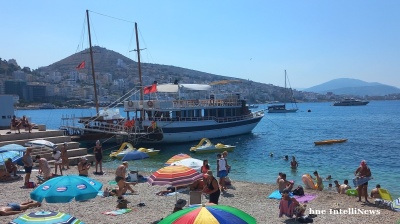
INTERVIEW: Can Albania’s tourism miracle last?
As social media brings in the crowds, the head of the Albanian Tour Operators Association tells bne IntelliNews Albania should turn away from mass-market tourism and focus on higher-value offerings.
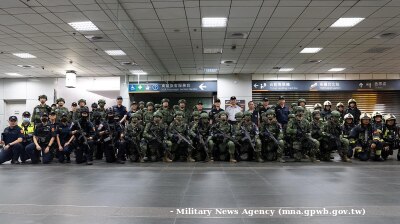
COMMENT: Taiwan’s equality paradox - when “progressive” doesn’t mean equal
Taiwan’s insistence that women should have access to every privilege of citizenship - from political office to professional advancement - but not its responsibilities, undermines the moral foundation of its democracy.

Russian e-commerce giant Wildberries goes on a mysterious M&A spree
Russian e-commerce giant goes on M&A spree Almost a year after the controversial merger with a leading outdoor advertising firm, Russia’s leading e-commerce site Wildberries is indulging in a fresh bout of eyebrow raising deals.
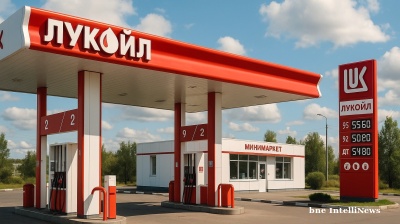
US expands oil sanctions on Russia
US President Donald Trump imposed his first sanctions on Russia’s two largest oil companies on October 22, the state-owned Rosneft and the privately-owned Lukoil in the latest flip flop by the US president.
